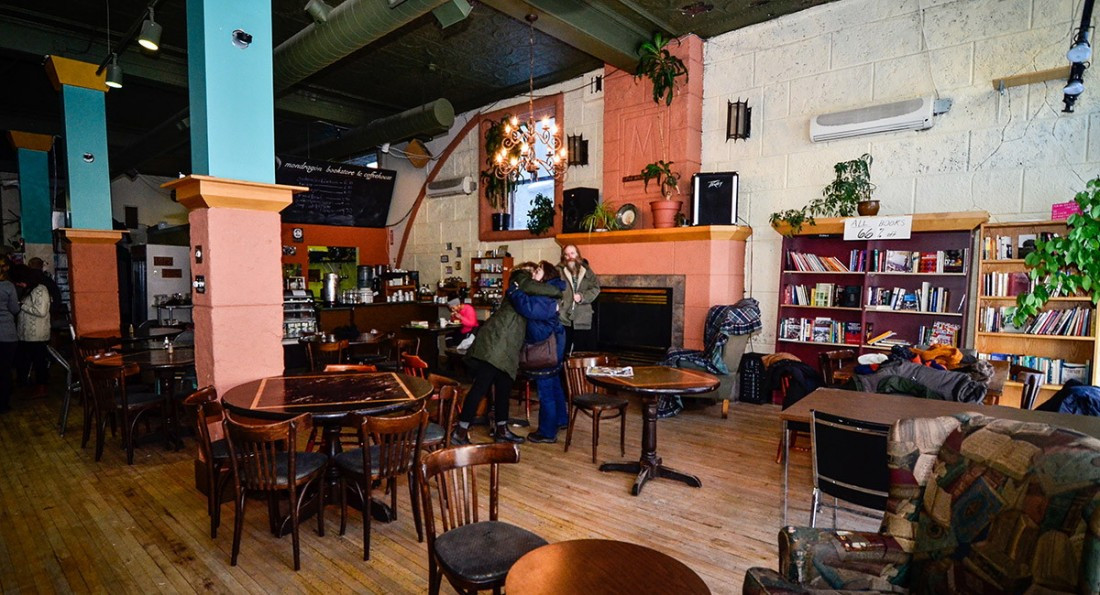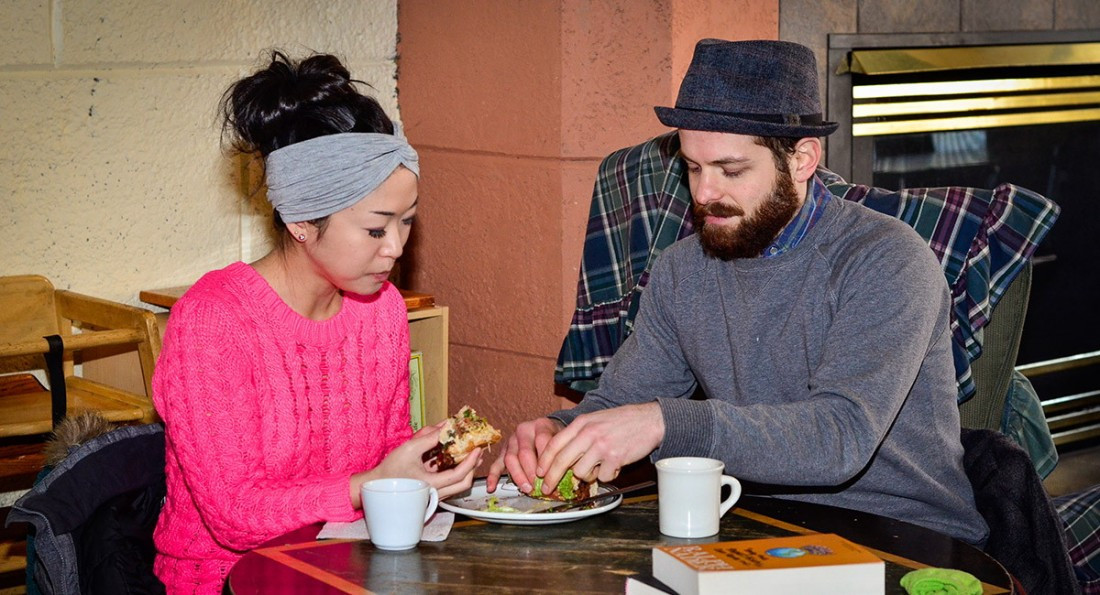What a ‘Drag
Resilient Mondragon collective says farewell
The closing of the business occupying the main floor of the Autonomous Zone at 91 Albert Street will undoubtedly leave a hole in the heart of the Exchange District.
But, the Mondragon Bookstore & Coffeehouse will always occupy a unique place in many hearts and minds.
Amidst the difficult ‘goodbyes’ exchanged between hundreds of folks who gathered for last weekend’s farewell, the realization of just what the Mondragon had accomplished over the years began to set in.
“The A-Zone was founded in 1995, before Mondragon opened its doors in July 1996,” tells Paul Burrows, one of the founding collective members.
Think about it: 18 years is a long time in the restaurant world.
Local independent restaurants and coffee shops just don’t last that long. And that goes for the ones that are playing by the rules of capitalism; the espoused efficiency of top-down management, minimum wage labour and standardized food.
So just how did Mondragon manage within this system while employing a collective, co-operative model with consensus-based decision making?
“We were able to survive because we believed in it so much and we just put in so much effort,” says Eton Harris, a member of the collective for 14 years.
“This was our family, this was our space. That’s the huge advantage of something like this. Sometimes we[’d] exploit ourselves – well, we often did – but we did it because we loved the space and wanted to keep it going.”
Harris remembers that along with 70-hour weeks working and organizing, the staff also relied on financial contributions from a founding member during the early years.
“What we were trying to do, on the scale that we were trying to do it, it couldn’t have happened the way it did without his help. I mean, you go to other cities and you see something like this, it’d be a way smaller version and it’d probably be volunteer labour,” he explains.
“We wanted to do it [with] paid, committed members.”
And for the most part, they did – though not without risks.
Books were brought in not because they were guaranteed to sell, but due to the belief such literature should be available in Winnipeg. The same went with its exclusively vegan menu.
“Now you can go to any restaurant and there’s a vegan option, back then [in 1996] it was unheard of,” Harris points out.
The space fostered progressive ideas and served the community in ways beyond providing local vegan food, fair-trade coffee and rare books. Along the way Mondragon presented high-profile speakers like Naomi Klein and Alexander Cockburn. It also saw several celebrities and musicians come through its doors, actors and musicians like Woody Harrelson, Susan Sarandon, Billy Bragg and Fugazi.
But most, like former member Jana Samolesky, find the memorable moments in the fine details of the place.
“What stands out the most as memories,” she describes, “is just the day-to-day drudgery of doing that with people, the experience of being so actively engaged with creative decision-making all the time, with really interesting minds.”
Though the Mondragon is no more, its faithful supporters may very well hear it forever echo Greg MacPherson’s sentiments chiding the Company Store: “Burn it down, boys!”
Published in Volume 68, Number 18 of The Uniter (January 29, 2014)









